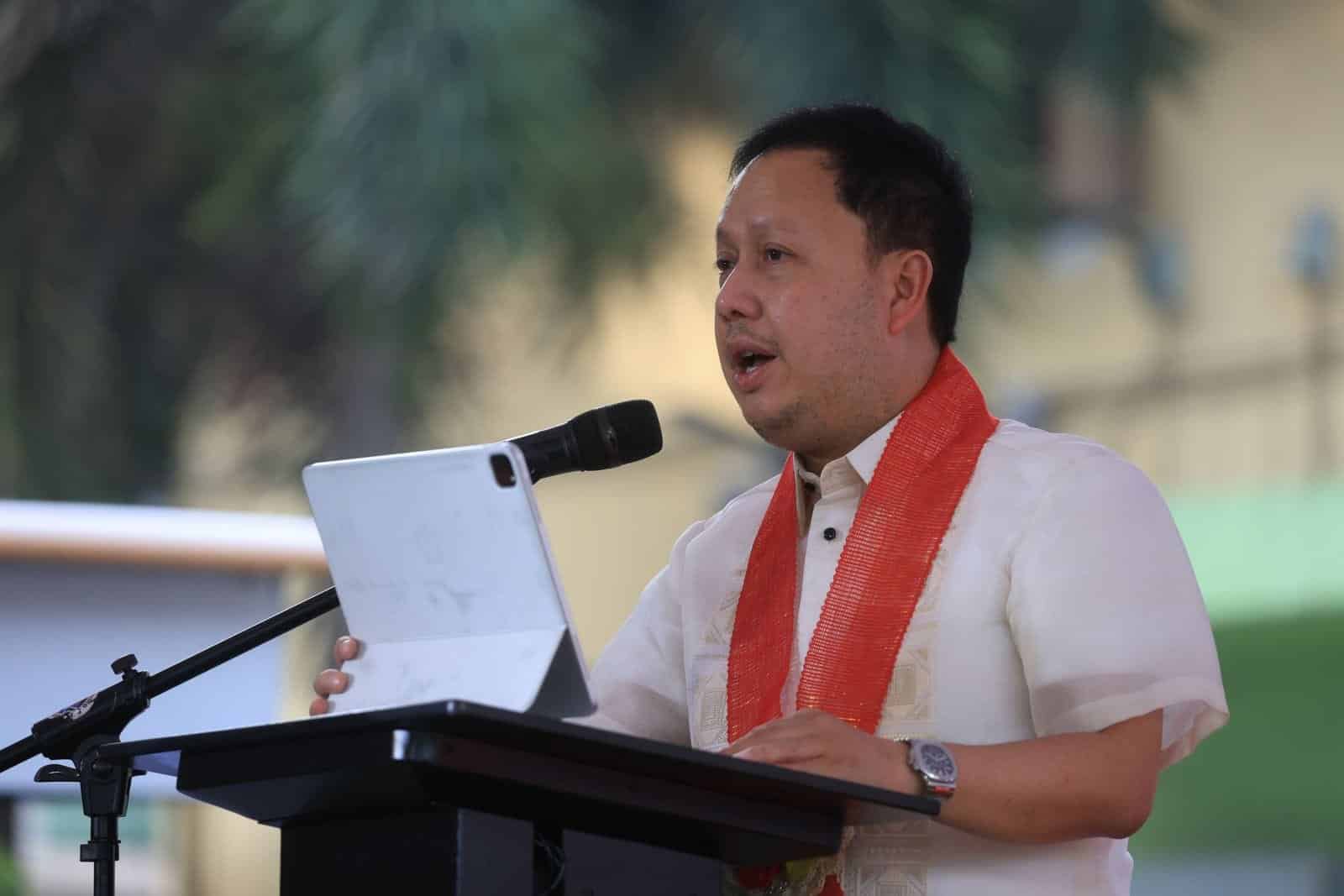
Rep. Zaldy Co of Ako Bicol, chairman of the House Committee on Appropriations | PHOTO: Official Facebook Page of Rep. Zaldy Co
MANILA, Philippines — The Department of Finance (DOF) move to channel billions of unused funds within government-owned and controlled corporations (GOCCs) to healthcare and social services will be of great help to the public, Ako Bicol Rep. Elizaldy Co said on Tuesday.
Co in a statement said that DOF’s decision is good because additional assistance will be provided without extra cost to the government.
The lawmaker was referring to a statement issued by the DOF on Monday, where it stated that “unused and idle funds of government corporations are being marshalled for projects in health, social services, and infrastructure that serve the public, finance growth, and cut poverty” — without affecting the viability of GOCCs.
“This initiative will re-channel billions of dormant funds to help millions of Filipinos enjoy better healthcare and social services, and bolster economic activity by investing more in social services and infrastructure projects at no extra cost to government,” Co, who heads the House of Representatives committee on appropriations, said.
Co’s panel is responsible for scrutinizing proposed national budgets, including the upcoming 2025 National Expenditure Program (NEP).
According to Co, moving funds from the Philippine Health Insurance Corporation (PhilHealth) will not hurt its fund life, as PhilHealth will be left with a P500 billion benefit chest, which can still support multiple-year claims.
Co said this is not a problem because only excess funds will be touched — adding that Congress had already checked on PhilHealth’s fund life and have noted that several portions of the PhilHealth budget have been stranded.
“These are not derived from member contributions but are, in fact, unutilized funds provided by the national government. It is essential to understand that these funds are distinct and separate from any contributions made by Philhealth members and are meant to be used for the country’s development,” he said.
“Congress has done its part in its exercise of oversight functions on the national budget, with respect to PhilHealth subsidies. Notwithstanding actions by Congress, huge amounts of stranded funds in PhilHealth exist and it would be a great injustice to Filipinos if these funds remain unused,” he added.
DOF in its statement said that PhilHealth subsidies are not part of reserve funds that will be touched by its plan to channel unused funds.
“In the case of PhilHealth, unused government subsidies are not part of its reserve funds, nor income that is being restricted by the Universal Health Care Act to be used by the national government as a general fund,” DOF said.
“The merit of this tack is best exemplified by the fact that PhilHealth and other GOCC remittances to the treasury are what enabled the DBM to release P27.5 billion to pay the 5.04 million claims of Covid pandemic era service allowances of frontliners,” it added.
DOF believes these funds must be utilized especially at a time when people need it the most.
“We cannot afford to have excess money sleeping in our GOCCs while withholding the same funds from public investment. Hibernating funds can help the nation without harming government corporations,” DOF said.
“This way, the government does not have to inflict additional taxes, increase our debt, and put pressure on our deficit. The DOF remains steadfast in its stewardship of sound fiscal policy which includes efficient mobilization of government resources to promote general public welfare,” it added.
Co agrees with this view, saying that it will bring positive developments for the country.
“This will widen the scope for the private sector to source more funds from the capital market as well as free up more funds for investments instead of using them to pay taxes. All things being equal, it should be a positive development for the economy and for efforts to create more jobs,” Co explained.
Proposals and moves to use funds lodged with GOCCs are not new. In November 2023, the House approved a bill that seeks to allow the government to tap excess funds of GOCCs for the unprogrammed appropriations in the 2023 national budget.
READ: House taps state firms’ funds for 2023 projects
The committee on appropriations is expected to start discussing the proposed 2025 national budget by mid-August, after the executive branch submits the NEP to the Congress.
READ: 2025 budget approval a House priority, says Romualdez
Previously, Speaker Ferdinand Martin Romualdez said that the 2025 national budget’s approval is the top priority of the House once session resumes on July 22.

